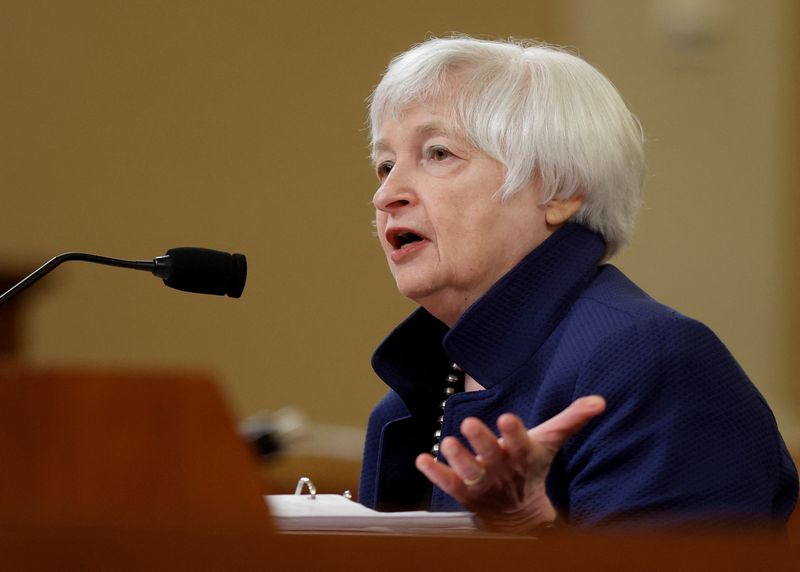Yellen says economists ‘eating their words’ after predicting high US unemployment
2023.12.05 21:32

© Reuters. U.S. Treasury Secretary Janet Yellen testifies before a House Ways and Means Committee hearing on President Biden’s proposed 2023 U.S. budget, on Capitol Hill in Washington, U.S., June 8, 2022. REUTERS/Jonathan Ernst/File Photo
By David Lawder
MEXICO CITY (Reuters) -U.S. Treasury Secretary Janet Yellen said on Tuesday that economists who predicted that high U.S. unemployment would be needed to tame inflation are “eating their words” as the economy experiences little weakness in the labor market and consumer demand with prices moderating.
“We’re not seeing the usual signs of a weakening labor market that would make you fear a recession,” Yellen told reporters on a trip to Mexico City.
“Economists who’ve said it’s going to require very high unemployment to get this done are eating their words,” she said, referring to the factors needed to bring inflation under control. “So it doesn’t seem at all like it’s requiring higher unemployment.”
The U.S. Labor Department is scheduled to report October jobs data on Friday, a major signal for whether Federal Reserve policymakers will hold interest rates at current levels or start to consider easing monetary policy. September’s unemployment rate ticked higher to 3.9% as jobs growth slowed, and new data on Tuesday showed further cooling in the labor market, with 1.34 job vacancies for every unemployed person in October, the lowest since August 2021 and down from 1.47 in September.
ADEQUATE DEMAND
Yellen said that demand continues to be adequate to “power the economy forward at trend-growth-like rates,” a reference to the long-run growth rate that an economy can achieve without inflation.
The U.S. economy grew at a searing annual pace of 5.2% in the third quarter, the highest since it shot out of the COVID-19 pandemic in the fourth quarter of 2021, buoyed by robust investments in factories, warehouses and equipment and strong consumer demand.
Yellen did not specify the level of growth that current demand could sustain. Many economists believe that the U.S. non-inflationary growth rate is about 1.8% annually, but Yellen has argued that federal investments in infrastructure, semiconductors and clean energy technology are raising its productive capacity.








